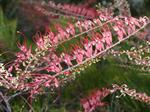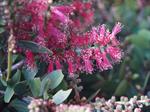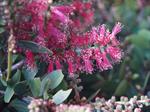Learn about genetics, cross pollination, collecting seed, selecting the best seedlings, protecting your plant variety rights, and more
Plant breeding is a bigger industry than most people realize.
In some places, earnings from plant breeding rights can equal or exceed earnings from actually producing plants. Today's nurseryman needs to understand plant breeding and selection; and
COURSE CONTENTS to this end, this course is a very valuable and unique course for anyone working in the modern industry
There are 7 lessons in this module as follows:
1. The Scope and Nature of the Plant Breeding Industry
- What is Plant Breeding
- Scope of the Modern Industry
- Sources of Genetic Material
- Germplasm Preservation
- Botanic Gardens, Plant Breeding Organisations, Research Bodies
2. Introduction to Genetics
- Review of Plant Genetics Linkage and Crossing Over
- DNA
- Homologous Chromosomes
- Cell Biology -cell components, cell wall, nucleus
- Protein Synthesis
- Plant Anatomy
- Plant Genetics, Mendel's Principles and Experiment
- Genetic Terminology
- Gene Linkages
3. Gamete Production, Pollination and Fertilisation in Plants
- Phases of Plant Reproduction
- Gamete Production
- Gene Mutation
- Sources of Genetic Variation: Polyploidy, Bud Sports and Chimeras
- Male Sterility
- Effect of Environment
Terminology
- Use of Pollination Biology in Plant Breeding: Pollination Process, Pollination Requirements, Cross Pollination, Fertilisation, Male/Female Recognition, Overcoming incompatibility, Post Fertilisation, Pollen Selection, Floral Introduction etc.
- Mitosis and Meiosis
- Genes
- Sexual Structures in Plants: Flowers, Fruit, Seed
4. Mono Hybrid and Dihybrid Inheritance in Plants
- Mono hybrid Crosses
- Dihybrid Crosses
- Gene Linkages
- Crossing Over
- Recombination
- Quantitative Traits
- Terminology
5. Systematic Botany and Floral Structures
- Systematic Botany
- Plant Morphology
- Type Specimens
- Floral Diagrams
- International Botanical Code
- Binomial System; Genus and species
- Hybrids, Varieties, Cultivars
- Name Changes
- Nomenclature of hybrids
- Using Botanical Keys
6. Practical Plant Breeding Techniques
- Plant Breeding Programs
- Breeding Self Pollinated Crops
- Pure Line Breeding
- Mass Selection
- Pedigree Breeding
- Bulk Population Breeding
- Breeding Cross Pollinated Crops
- Single Plant Selection
- Mass Selection
- Progeny Selection
- Line Breeding
- Recurrent Selection
- Backcross Breeding
- Induced Polyploidy
- Hybrid Seed Production
- Dormancy Factors Affecting Germination (eg. hard seeds, impermeability to water, Chemical inhibitors, Undeveloped embryos, etc)
7. Current Developments in Plant Genetics
- Plant Biotechnology
- Genetic Engineering
- DNA Markers
- Somatic Hybridisation
- Micropropagation
- Plant Breeders Rights
- Trade Marks, Patents

AIMS
- Describe the commercial and scientific nature of the modern plant breeding industry, on a global basis
- Describe the structure and function of genetic material
- Describe gamete production in plants.
- Explain the results of mono hybrid and dihybrid inheritance in plants.
- Investigate the role of systematic botany in horticulture.
- Explain a variety of different plant breeding techniques.
- Review current developments in plant breeding.



STUDENT'S COMMENT
"I am very pleased and impressed with the way that ACS recently handled my submission. This included acknowledgement of receipt of my answers, finding a specialist to answer a specific subject enquiry, and a tutor to mark the work in the temporary absence of Katie.
All three were both professional and helpful, contributing to my enjoyment and acquisition of interesting, useful knowledge from the Plant Breeding course".
(Malcolm Quigley, U.K.)

What is a Hybrid Plant?
Hybrid plants are those that have been derived from two or more different parent or ancestor species. For example, two species may interbreed to give one hybrid offspring and that resultant hybrid may interbreed with a different species to produce another hybrid that has derived 25% of its characteristics from one species, 25% from another, and 50% from the third.